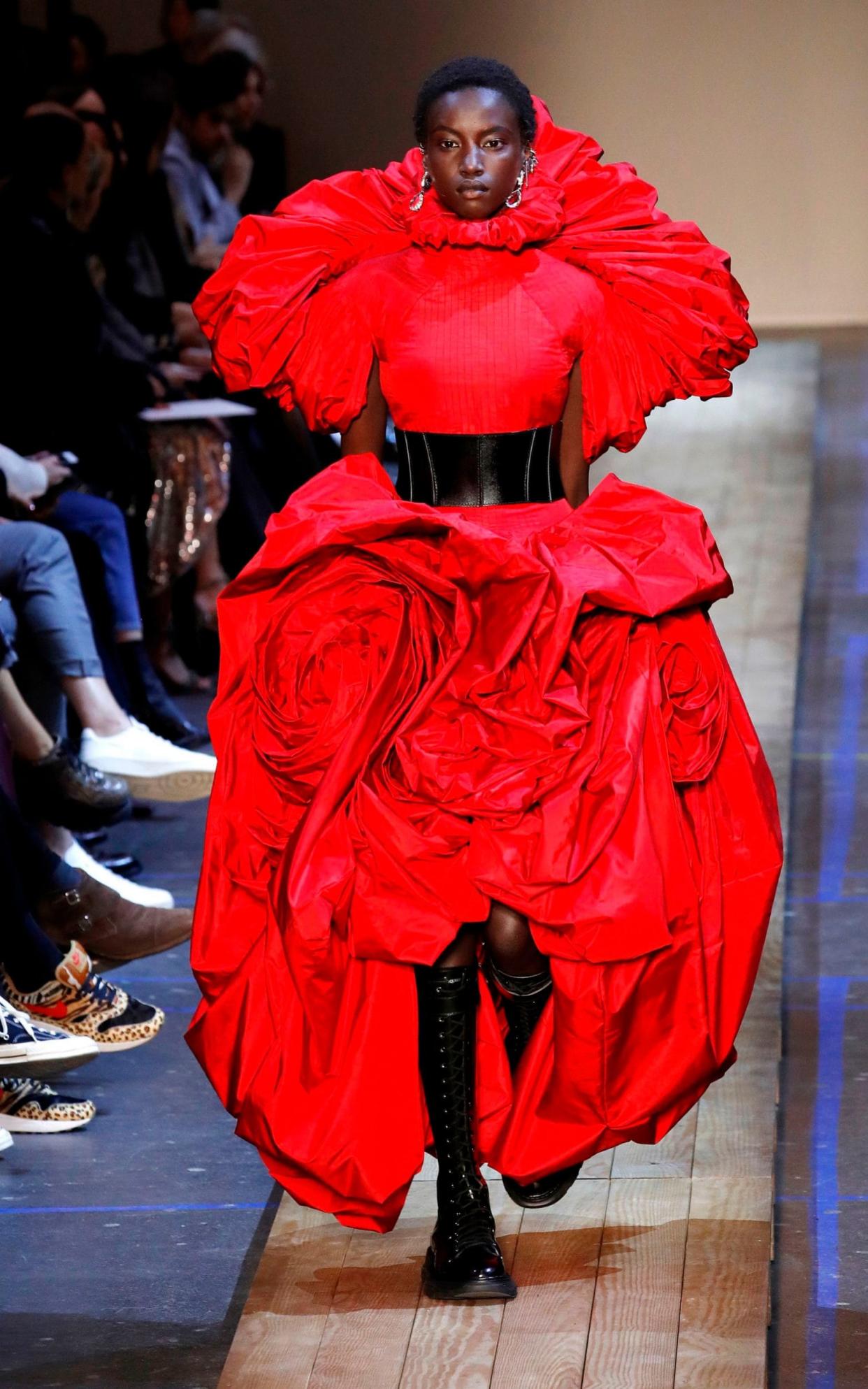How Sarah Burton's latest Alexander McQueen collection was inspired by a trip up north

?“It starts with the hand and it ends with the hand,” said Sarah Burton, standing back from a black wool trouser suit with a long asymmetric peplum, then adjusting a slight hollow where the jacket dipped on one side against the concave just below the model’s clavicle.?
I’ve seen so many not quite perfect jackets at very high end labels. But she wasn’t having any of it. “This,” she says, gesturing to the rest of the collection, “is quintessentially masculine tailoring, rooted in Savile Row techniques, with almost no softnesss, yet it’s still contoured to a female body, which requires even more obsessiveness than men’s tailoring.”
This is the year tailoring has swept all before it – on the catwalks at least. And sooner or later it’s going to trickle down, even if, at retail, a semi-fitted dresses will be an easier sell. Once they’ve seen how confident, controlled and delicately refined those shoulders look– 42cms tip to tip - every woman’s going to want at least one tuxedo jacket in her wardrobe.
This collection, as well as beginning and ending with the hand, started with the tuxedo: either as the basis for contoured coats with blanket hems or panels of leftover scraps of tweed, or incorporated into leather skirt suits, or sliced into ribbon strip peplums and worn with ripples of cobwebby lace wools. Anchoring the looks are those wide McQueen belts, a formerly niche accessory now coming into its own. Burton has used Alexander McQueen’s language to express a take on modern femininity that doesn’t try to be gender fluid, and in the process has come up with a much more interesting, nuanced interpretation.

It all makes sense when you discover that this season’s field trip took Burton and her design team to Manchester, where Burton studied, and the People’s History Museum which documents the rise of democracy and suffragettes. Cue white raw-edged dresses - a nod to one of their emblematic colours, flashes of military scarlet and pinstripe wools that reminded Burton of a suit her father used to wear.
From Manchester, the McQueen studio travelled up to the mills in Bradford and Huddersfield. “Most Brits assume these mills and factories closed down years ago, but they’re flourishing and producing the most beautiful wools and tweeds for all the international designers. It’s very moving seeing the people who work there. They’re every age. Some of them retire – but then they come back”.

The satanic mills of Northern England – considerably less satanic now, and often converted into luxury flats – were always juxtaposed with the raw beauty of the Yorkshire and Derbyshire countryside, the latter celebrated in this collection with a series of rose themed dresses. Some featured rained-on rose prints. Others were built up from whirls of roses. One black jacket had fuchsia silk rose sleeves. “You literally start with a bolt of fabric, and keep going until you run out,” laughs Burton. About 30 metres of silk taffeta for the dresses.
While Burton and her 100 plus team from London worked through the night fitting and finishing in their temporary Paris HQ, Emmanuel Gintzburger, their CEO, was telling the Business of Fashion about the bullish plans of the Kering group (which owns McQueen) to double the label’s annual turnover to 1 billion euros in the next few years.
Burton is supremely uncomfortable talking figures, although in the eight years since she has been in creative control, the house has taken £100 million annual revenue and fewer than 11 directly operated stores, to its current 350-400 million euro turnover and 64 stores. That kind of steady growth doesn’t happen by accident. She’s as clear sighted about what makes McQueen McQueen – tailoring, craft, a sense of slow fashion – as Kering is in its ambitions for the house.

“Don’t tell me what the article says,” she laughs. She’d rather talk about the silver column gown, composed from hundreds of heddles (the metal strips on a loom). Burton found a discarded heddle on the floor of one of the factories and did what most of us wouldn’t: thought what an incredible, shimmery combination of machine and craft it would be. As she says, it starts with the hand, and ends with the hand.